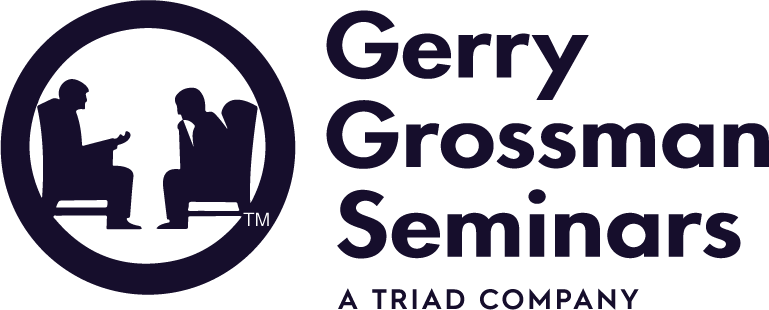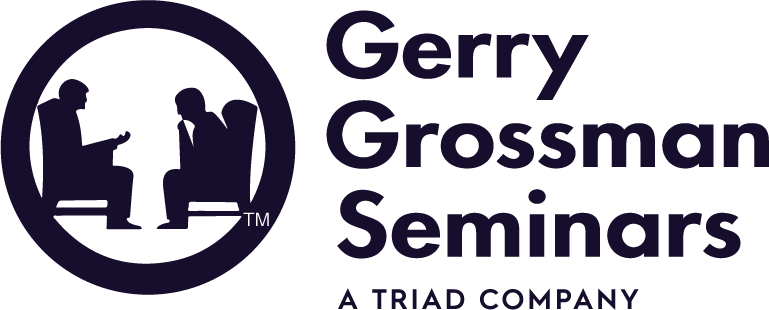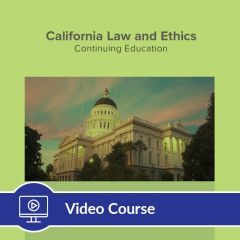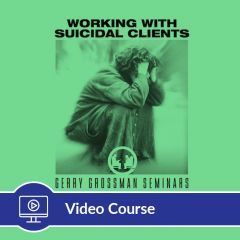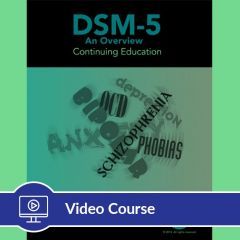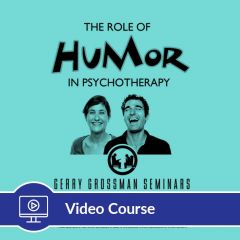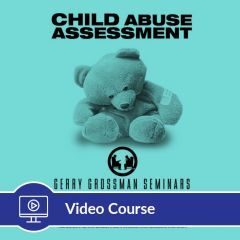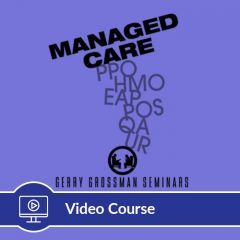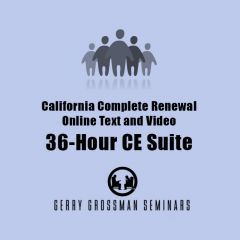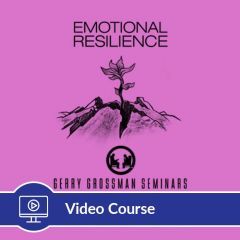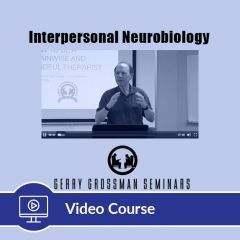27-Hour California MFT Pre-licensure CE Suite Online Text-based Course (27 CE)
This package contains most the courses you need to fulfill your California MFT pre-licensure requirements. At a substantial discount it gives you 27 hours of coursework and includes these GGS at-home courses:
- Child Abuse Assessment and Reporting (7 hours)
- Human Sexuality (10 hours)
- Aging and Longterm Care (10 hours)
Need printed Materials?
Order Print + Online Here
Child Abuse Assessment and Reporting CE Text-based Home Course
Almost all mental health professionals, regardless of their work settings, will at some point in their career encounter child abuse or neglect situations. By law, mental health professionals are mandated to report suspected child abuse and neglect. There is a wide range of issues pertaining to child abuse/neglect intervention, which includes identification, assessment, reporting, and treatment. For these reasons, it is critical that mental health professionals be informed about the principles and strategies helpful in these areas.
In five sections this course covers historical perspective, an overview, four types of child abuse, therapist's responses (including reporting, assessment, and therapy), and issues of countertransference.
Author: Min Hae Cho, M.S.W.
Target Audience: Introductory and Intermediate; LMFTs, Social Workers, LPCCs, Nurses, Substance Abuse Counselors, and other mental health clinicians.
Upon completion of this course, participants will be able to:
- Identify and clinically assess for the four types of child abuse: physical abuse, sexual abuse, emotional abuse and neglect.
- Utilize appropriate methods and skills for counseling children and their families in cases of child abuse and neglect.
- Identify and apply legal and ethical considerations with regard to mandated reporting duties for suspected child abuse and neglect.
- Demonstrate knowledge about treatment issues and specialized interventions for specific intrapersonal, interpersonal, and developmental issues associated with child abuse.
- Recognize countertransferential reactions with cases of child abuse and how to obtain appropriate professional guidance and support.
Human Sexuality CE Text-based Home Course
Clients often present with concerns about their sexuality, but this area may be difficult to discuss for both the therapist and the client. This curriculum provides a thorough review of historical perspectives, physical aspects of sexuality, and typical clinical issues among men and women. Definitions of sexual disorders are discussed from a psychosocial and diagnostic perspective. Issues related to sexual abuse in children and rape are discussed. This course also includes issues related to social definitions of gender (i.e., notions of masculinity and femininity) and their impact on personal identity, marriage and feminist-informed therapy. Issues pertinent to "nonconventional" forms of sex and sexual identity are also described, including issues related to the LGBT community and nonmonogamy.
Authors: Gerry Grossman, M.A., LMFT, Melanie Haro, M.A., LMFT, Kristen Hudson, M.A., LMFT, Nancy Klein, M.A., LMFT, Mary Ella Viehe, Ph.D.
Target Audience: Introductory and Intermediate; LMFTs, Social Workers, LPCCs, Nurses, Substance Abuse Counselors, and mental health clinicians.
Upon completion of this course, participants will be able to:
- Identify the basic information related to male and female sexual anatomy and response.
- Assess and diagnose common clinical sexual problems and addiction.
- Identify the issues related to sexual violence for both victims and perpetrators.
- Integrate sociopolitical issues related gender, sexual orientation and alternative sexual practices into treatment planning.
Aging and Long-Term Care CE Text-based Home Course
As longevity and quality of life continue to improve, the population of seniors in the United States will exert increasing influence on the healthcare market, including psychological and long-term medical care services. The conditions associated with older age, such as Alzheimer’s disease and chronic illness, have become salient in healthcare provision for the elderly, and often take priority when long-term care begins.
However, often overlooked are the emotional and social challenges which elders face, which can compound the negative outcomes of their physical health. Depression, isolation, and grief, for example, are common among the elderly and can interfere with their ability to thrive with long-term illness. Very importantly too, the long-term care of elders includes caregivers, often women and family, who bear a substantial emotional burden. Their depression, conflicts and guilt can make the process and decision-making challenging, and without treatment, put them and the elders at risk. This course will discuss how therapists can assist elders and their families cope with the emotional and transitional issues associated with long-term care. Accommodations of therapy, counter-transference and assessment techniques for therapists will be addressed. Attention is also given to social issues and cultural diversity, treatment modalities including formal care, informal care and spiritual approaches, and the legal aspects of family and team-caregiving.
Authors: Tima Ivanova, M.A., LMFT, Patricia Patton-Lehn, Ph.D., Nancy Klein, M.A., LMFT
Target Audience: Introductory and Intermediate; LMFTs, Social Workers, LPCCs, Nurses, Substance Abuse Counselors, and other mental health clinicians.
Upon completion of this course, participants will be able to:
- Identify and assess the medical, emotional and social factors which impact elders’ mental health.
- Identify and assess the roles, pressures and challenges among informal caregivers.
- Implement a range of treatment modalities for elders and caregivers.
- Develop interventions, taking into account issues of cultural diversity, and the legal and tactical adjustments that must be made for long-term caregiving.
This course satisfies the following California BBS Pre-licensure requirements:
- All 10 hours of Aging and Long-Term Care required for California LMFT candidates
- All 7 hours of Child Abuse Assessment & Reporting required for California LMFT candidates
- All 10 hours of Human Sexuality required for California LMFT candidates
Advantages of taking Gerry Grossman Seminars at-home CE courses:
- Online courses offer the post-test online for instant course completion.
- You can repeat the post-test if you don't pass.
- Online courses are available to you immediately after purchase.
- California LMFTs, LCSWs, LPCCs and LEPs can fulfill 100% of their CE hours online.
